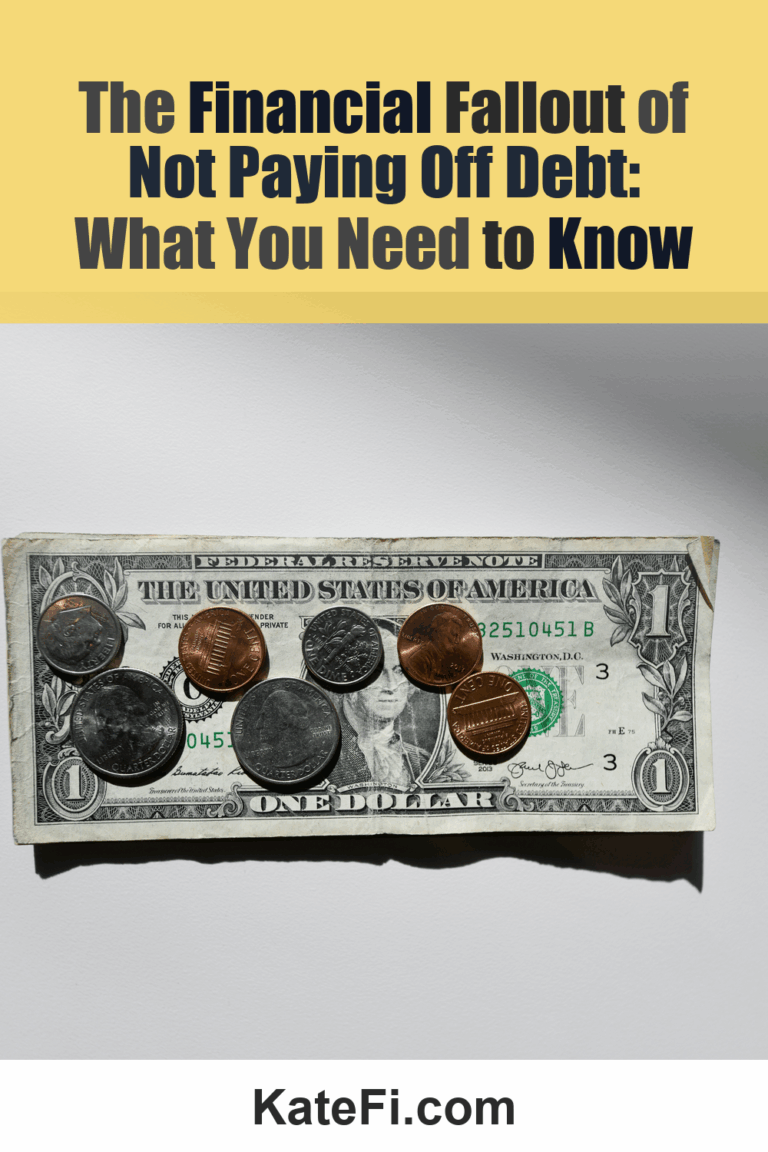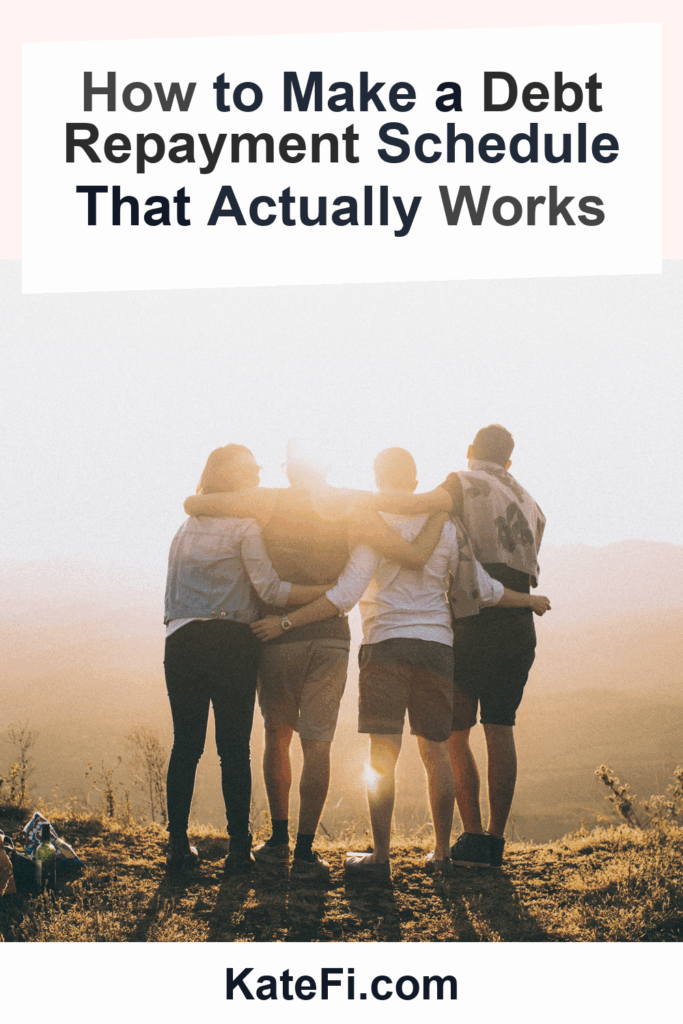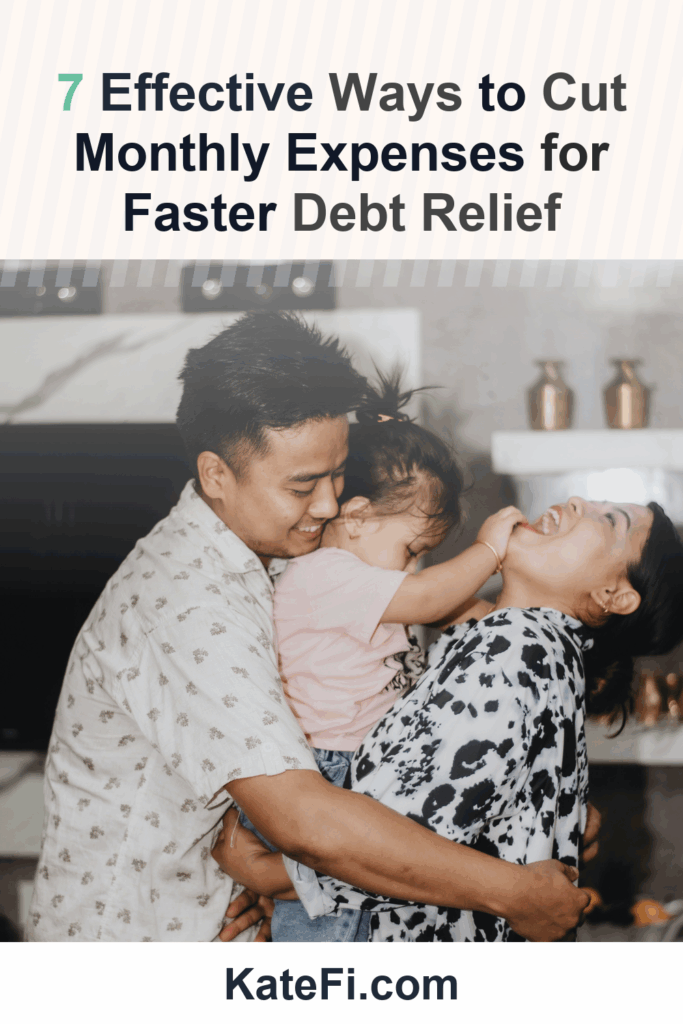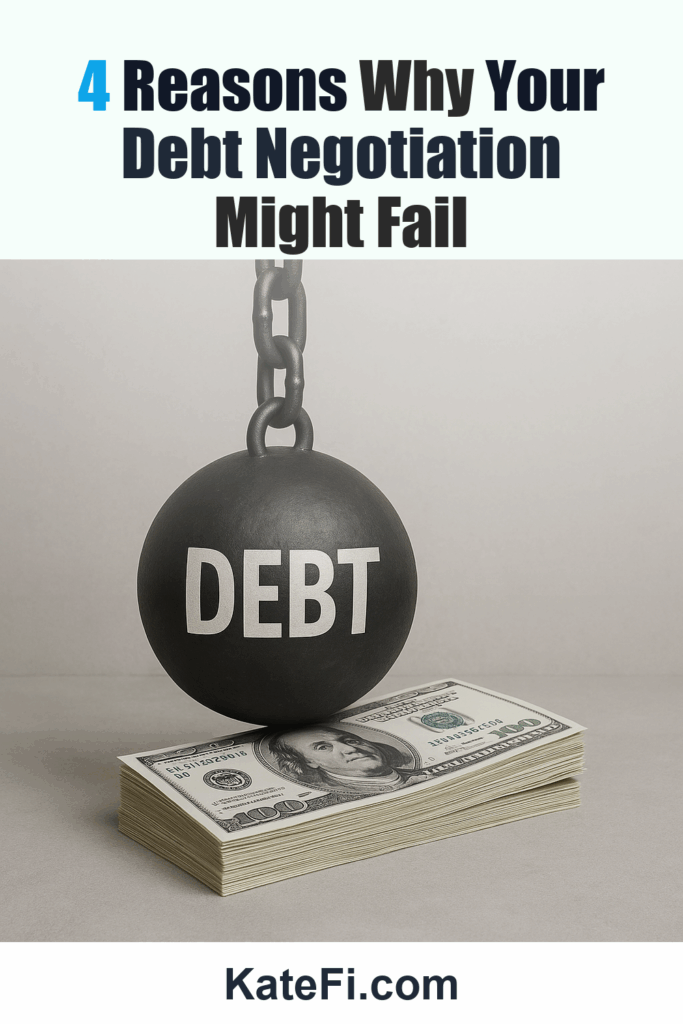The Financial Fallout of Not Paying Off Debt: What You Need to Know
When it comes to managing personal finances, debt is a reality for many. However, the decision to not pay off your debts can lead to a myriad of financial troubles. This blog post will provide insights into the consequences of unpaid debt, address frequently asked questions (FAQs), and guide you in choosing the best path for relief. Let’s dive in.
Love our content? Show your support by following us — pretty please!🥺
FOLLOW ON PINTEREST
Hi! I’m Kate, the face behind KateFi.com—a blog all about making life easier and more affordable.
1. What happens if I don’t pay my debt?
Lower Your Unsecured Debt
If you have $5,000+ in credit card or personal loan debt, a free consult can review options like settlement or hardship plans.
- One-on-one call to review your debts and goals
- See potential monthly payment reductions
- No obligation to enroll
Not available in IL, KS, OR, TN, UT, WV.
Failing to pay your debts can lead to severe financial repercussions. Initially, your creditor may send reminders and notifications. However, if you continue to miss payments, they might escalate their collection efforts, which can include:
- Negative impacts on your credit score.
- Being contacted by collection agencies.
- Potential legal actions, leading to lawsuits.
The consequences can spiral out of control if ignored, making it essential to address your debts proactively.
2. What is a debt settlement?
Understand pros/cons of settlement vs consolidation vs DMP for your exact mix of debts.
Not available in IL, KS, OR, TN, UT, WV.
Debt settlement is a negotiation process where you work with your creditors to settle your debts for less than what you owe. Typically, you may choose to do this yourself or hire a debt settlement company. However, keep in mind that settling a debt can lead to a negative impact on your credit score since it’s reported as “settled for less than owed.”
If you’re struggling with high amounts of debt and considering this option, you can start with a free consultation to explore your choices.
3. How is debt consolidation different?
👉 Start Your Free Debt Relief Review
Not available in IL, KS, OR, TN, UT, WV.
Debt consolidation involves taking out a new loan to pay off multiple debts. This could mean taking a personal loan, home equity loan, or utilizing a balance transfer credit card. The main benefit is combining several debts into a single payment, usually at a lower interest rate. However, keep in mind that consolidating debt does not erase it; it simply restructures your repayment plan.
✅ See If You Qualify for Debt Relief
4. What about a Debt Management Plan (DMP)?
A Debt Management Plan (DMP) is structured through a credit counseling agency, where your counselor negotiates with creditors to lower your interest rates or monthly payments. You then make a single monthly payment to the agency, which they distribute to your creditors.
This option is best for individuals with consistent income but facing difficulties managing their payments. If you think a DMP might be right for you, consulting with professionals can help clarify your options.
5. What are the differences between settlement, consolidation, and DMP?
What You’ll Learn on the Call
- Estimated timeline and monthly payment range
- How credit may be affected in the short term
- What documents to gather to move faster
Not available in IL, KS, OR, TN, UT, WV.
Here’s a quick comparison table to illustrate the differences:
| Feature | Debt Settlement | Debt Consolidation | Debt Management Plan (DMP) |
|---|---|---|---|
| Effect on Credit | Negative (settled for less) | May improve if paid on time | May improve as payments are made |
| Monthly Payment | Typically lower but varies | One fixed payment | One fixed payment |
| Creditor Negotiation | Yes | No | Yes |
| Impact on Debt Amount | Reduces total amount owed | Does not reduce total debt | Does not reduce total debt |
| Eligibility | Varies, often for those in severe debt | Good credit can help | Must demonstrate the ability to pay |
✅ See If You Qualify for Debt Relief
6. How can I validate a debt before paying it?
When faced with a collection notice, validating the debt is crucial. You can request proof of the debt from the collector, including the original creditor’s details and the total amount owed. This can protect you from paying debts that you might not actually owe.
7. What if my debt collector sues me?
If a creditor or collection agency sues you, it’s essential to take the situation seriously. Respond promptly to any legal notices, as ignoring them can lead to automatic judgments against you. Seek legal advice if you receive a summons to understand your rights and options.
8. How does hardship affect my options for debt relief?
If you’re facing financial hardship due to job loss, medical bills, or other unforeseen circumstances, you might qualify for more favorable terms, including:
- Reduced payments through DMP.
- Settlement opportunities.
- Income-driven repayment plans for loans.
Most importantly, don’t hesitate to reach out for a free consultation to explore the best approach for your financial situation.
9. What documentation should I gather for a consultation?
For a quicker and smoother consultation, gather the following documents:
- Pay stubs or proof of income.
- Bank statements.
- List of debts and creditors.
- Any correspondence from collectors.
- Current bills.
This documentation helps create a clearer picture of your financial situation, allowing for better guidance on your options.
10. What is the long-term impact of not paying off debt?
Ignoring debt can lead to a host of long-term issues, including:
- Damage to your credit score, making future borrowing difficult or expensive.
- Accumulation of more debt due to late fees and interest.
- Potential loss of assets if creditors seek legal action.
The key takeaway here is that proactive management is crucial.
11. How can I improve my credit score after settling or consolidating?
After settling or consolidating debt, focus on rebuilding your credit score by:
- Making all future payments on time.
- Keeping credit card balances low.
- Avoiding new debt applications.
- Regularly checking your credit report for errors.
Rebuilding takes time, but it’s definitely achievable with diligence and responsibility.
12. Should I tackle debt alone or seek help?
Deciding to manage your debt is personal and can depend on many factors. If you’re comfortable negotiating with creditors and have a plan, you might do fine on your own. However, if you feel overwhelmed, consider seeking professional help to evaluate your options comprehensively.
You can start with a free consultation at KateFi.com to find the best approach for your situation.
Conclusion
The financial fallout of not addressing your debts can be daunting. Whether you choose settlement, consolidation, or a DMP, understanding your options is key to making an informed decision. Always weigh the benefits against the risks, and consider professional assistance to navigate your financial journey. Don’t let debt control your life—act today for a brighter financial tomorrow.
Important: This content is for education only—not legal, tax, or financial advice. Results and eligible programs vary by situation and state. Fees apply if you enroll and complete a program. Debt relief can affect credit; missed payments may lead to collections/lawsuits. Not available in IL, KS, OR, TN, UT, WV.
Remember, seeking help is a sign of strength, not weakness. If you’re struggling, take the first step by getting a free consultation today. Your financial health is worth it!






















